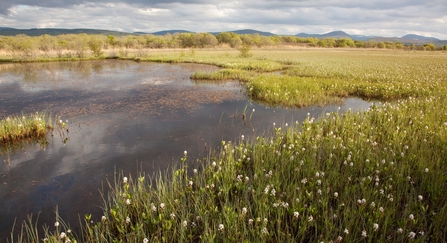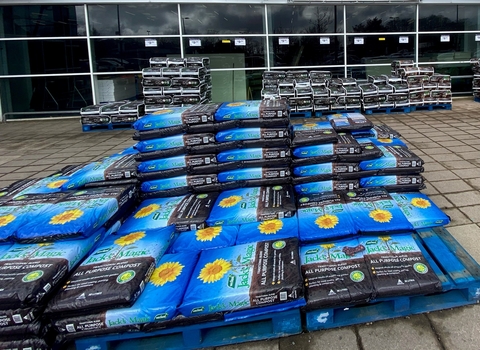The English and Welsh Governments have announced a consultation on ending the sale of peat to amateur gardeners. But ambition to protect peatlands is still falling far short of what is badly needed.
Governments set low bar on phase out of gardeners’ use of peat
Peatlands are the largest on-land store of carbon and are vital to our fight against climate change, with the UK’s peatland storing 3.2 billion tonnes of carbon. However, 80% of these vital habitats are now degraded. The extraction of peat for horticulture contributes to this by stripping peatlands of vegetation, exposing peat to the atmosphere and allowing carbon dioxide to be released in massive quantities.
Lowland peat areas in Nottinghamshire include the River Idle floodplain and the Misson Carr Nature Reserve (the Humberhead Levels). One day we hope to launch peatland restoration works and bring back some of our lost fens, but nature can't wait.

Peter Cairns/2020VISION
For decades the UK Government has failed to bring to a clear end the commercial extraction of peat and its sale to gardeners and the horticulture industry. In 2010 a voluntary target was set to phase out the use of peat by amateur gardeners by 2020. Today, peat still accounts for a significant volume of the growing media sold by retailers and despite its initial aspirations, the voluntary targets set by the Government have been unsuccessful in changing the industry.
A similar target to end peat use in the professional sector by 2030 looks set to be missed, with peat still accounting for around 41% of the growing media used in horticulture overall. Unfortunately, today the UK and Welsh Governments have demonstrated that they will not act with the urgency required by immediately ending the sale of peat in both the amateur and professional markets.
Peatlands are vital carbon-storing habitats and it’s absolutely crucial that they remain intact for nature’s sake and to help us tackle climate change. When a peatland is degraded or extracted from, it stops storing carbon and emits it instead. So it’s vital that UK governments ensure peatlands function as nature intended by taking urgent action right now.The Wildlife Trusts
Once the consultation closes in March 2022, the UK and Welsh Governments must publish a strategy which sets out a framework for an end to peat use among amateur growers and gardeners, by 2024 at the latest. The Wildlife Trusts are calling for:
- An immediate end to the sale and use of bagged peat compost in the amateur market.
- An immediate end to the sale and use of peat in the professional market.
- The immediate cessation of the extraction of peat from the UK’s peatlands.
- An immediate end to the importation of peat for compost; two-thirds of peat used in the UK is imported. An import ban must therefore be implemented alongside an extraction ban in order to prevent ‘offshoring’ of peatland damage to countries with less stringent legislation.
- Restoration of all bogs damaged by the removal of peat as a priority.
The Wildlife Trusts ask people to show the UK and Welsh Governments that they care by taking a ‘peat free pledge’ at wildlifetrusts.org/ban-sale-peat and also to support an immediate ban on peat-based products. Everyone is urged to check information on packaging to ensure that garden purchases are free of peat.

